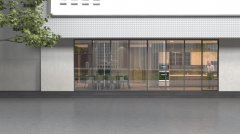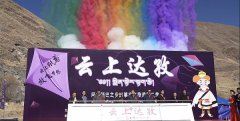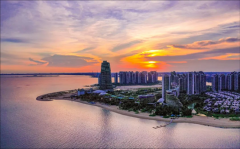A year after the nation's top leader Xi Jinping made his first inspection tour of as president, a series of measures have been rolled out to help the city's development and livelihood issues.
Those efforts came after Xi outlined the central government's support for Hong Kong's integration with the country's overall development.
In his speech on July 1 last year, during the three-day inspection tour, one of the strongest pledges Xi made was to help people from the city who wanted to study, work and live on the mainland, offering more opportunities for Hong Kong compatriots seeking development opportunities.
Later, in August and December last year, the Hong Kong and Macao Affairs Office of the State Council announced two batches of measures offering convenience to Hong Kong people on the mainland in education, employment, business and travel.
The most timely and helpful measure is phasing out the employment permit requirement for Hong Kong people working on the mainland, explains Kuo Wai-keung.
Kuo is a Hong Kong-born entrepreneur operating a startup in Qianhai, a free-trade zone in Shenzhen which is the first area to implement the new policy.
An employment permit mechanism has been imposed on residents from the Hong Kong and Macao special administrative regions and Taiwan since 2005.
The permit, a must for people from the three places to work on the mainland, should be renewed every two years.
Kuo said the change meant the company's Hong Kong employees no longer need to extend their work permits when their contracts expire. Time needed to recruit new staff from Hong Kong has been reduced by "at least two months".
The change significantly dismantled a major obstacle for Hong Kong people seeking to pursue careers on the mainland, Kuo said. "I believe this will encourage more from Hong Kong to take their first step in the huge market," he added.
Similar measures included a national administrative order to give Hong Kong and Macao people equal rights to the mainland's housing fund. Zhuhai — a Guangdong-Hong Kong-Macao Greater Bay Area city — responded this month, by allowing Hong Kong and Macao people who work in the city to join the Housing Provident Fund system, making them eligible for low-interest housing loans.
Moreover, the education authority set up scholarships dedicated to students from Hong Kong and Macao to sponsor their studies on the mainland, with larger quotas and more money.
The National Social Science Fund is now also open to applicants from Hong Kong and Macao.
More to Be Done
Besides the pledges, the president also voiced his expectations on the SAR government's future work in speeches during the inspection tour. These expectations included promoting the national Constitution and the Basic Law as a priority. This is integral for implementation of the "one country, two systems" principle, he said.
David Wong Yau-kar, a non-official member of the Basic Law Promotion Steering Committee, recognized the importance of the Constitution as it has endowed the establishment of the SAR and the city's legal framework.
Wong noted that Hong Kong people's understanding of the Constitution has deepened during the year, thanks to great efforts from the SAR government following Xi's inspection tour.
In November last year, the SAR government invited Li Fei — the then chairman of the HKSAR Basic Law Committee under the National People's Congress Standing Committee — to attend a seminar in Hong Kong on Basic Law. Students in 50 Hong Kong secondary schools watched the broadcast of a 50-minute speech delivered by Li.
Wong said activities promoting the Basic Law, which originated from the Constitution and provides a legal basis for vital issues related to Hong Kong's development, have also been well organized.
On Dec 4 last year, National Constitution Day was marked in Hong Kong for the first time with a seminar which attracted about 110 officials and legal professionals.
As Xi emphasized, enhancing the understanding of the Basic Law, especially among students and civil servants, will be the priority of the promotion steering committee's future work, Wong said.
Hong Kong civil servants' understanding of the mainland's political system should also be strengthened, Wong added.
He took the Legislative Council by-election in March as an example. The by-election collided with the annual national political events — the two sessions — meetings of the National People's Congress, and the Chinese People's Political Consultative Conference National Committee.
About 200 local deputies to the two sessions were in Beijing for meetings, leaving them unable to attend to the by-elections. This should have been avoided at the very beginning, Wong said.
Livelihood Issues Vital
Also in his July 1 speech, Xi pointed out the SAR government should strive to solve key problems on economic and livelihood issues, and improve Hong Kong people's well-being.
To resolve livelihood problems in housing and care for the elderly, Wong, who is also a Hong Kong deputy to the NPC, urged the SAR government to seek breakthroughs in the Guangdong-Hong Kong-Macao Greater Bay Area development, which will offer more resources and options in solving these issues.
Echoing Wong's view, Zhang Yuge — director of the Center for Hong Kong and Macao Studies at the , a Shenzhen-based think tank — said a designated area with special measures for Hong Kong and Macao residents to adapt to work and life on the mainland in the nine Guangdong cities in the Bay Area could be in place to help solve Hong Kong's livelihood problems.
But Zhang emphasized the SAR government should decide which problems could be solved with the nation's help, and which matters could only be settled by itself.
(Souce: China Daily)




